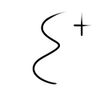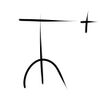Contionary:yan': Difference between revisions
Jump to navigation
Jump to search
No edit summary |
|||
| (37 intermediate revisions by 2 users not shown) | |||
| Line 1: | Line 1: | ||
==Soc'ul'== | ==Soc'ul'== | ||
===Etymology 1=== | ===Etymology 1=== | ||
{{ | {{wacag|snake-a|snake-b}} | ||
{{qsc-inh|ɣanːə|ekans-otl<c:ekans->}} {{cog|qsc|gwax|kazol³|kisl|ēânsoš}} Doublet of {{l|qsc|yan'ux}} | |||
===Pronunciation=== | ===Pronunciation=== | ||
{{ | * {{IPA all|qsc|[ɰa˩nˀ]}} | ||
===Noun=== | ===Noun=== | ||
{{ | {{qsc-n|4}} | ||
# snake | # snake | ||
#: {{ux| | #: {{ux|qsc|Ñ'in' '''yan'''' miu eý, cozuc'zi!|There's a '''snake''' in the grass, watch out!}} | ||
===Derived terms=== | ===Derived terms=== | ||
{{col-auto| | {{col-auto|qsc|yan' c'ualdocuóc|yan'ih|xeuax yan'|yan' tsadix|yan' tsadix ir'|yan' zau|txicñ yan'|ié yan'}} | ||
===Descendants=== | |||
*{{desc|soky|a¹}} | |||
===Etymology 2=== | ===Etymology 2=== | ||
{{ | {{wacag|twist}} | ||
{{qsc-inh|ɣanːi|ekans-i<c:ekans->}} {{cog|qsc|kisl|ēânse}} | |||
{{ | |||
===Verb=== | ===Verb=== | ||
{{ | {{qsc-v|erg}} | ||
# to coil | # to twist, to coil, to twirl, to swirl | ||
#: {{ux| | #: {{ux|qsc|U'''yan'''' hez'i bauriad sauxe ziñúx.|The wire coral '''twists''' around in a spiral.}} | ||
===Adjective=== | ===Adjective=== | ||
{{ | {{head|qsc|adjective}} | ||
# coiled | # twisted, coiled | ||
#: {{ux| | #: {{ux|qsc||}} | ||
===Derived terms=== | ===Derived terms=== | ||
{{col-auto| | {{col-auto|qsc|yan'ibeha|yan' āl mur'eu je}} | ||
===Etymology 3=== | ===Etymology 3=== | ||
{{ | {{wacag|command}} | ||
{{qsc-inh|ɣanːi|ekan-si<c:ekan->}} {{cog|qsc|xodc|coñz}} | |||
{{ | |||
===Verb=== | ===Verb=== | ||
{{ | {{qsc-v|acc}} | ||
# to rule, to command, to order, to demand | # to rule, to command, to order, to demand, to instruct | ||
#: {{ux| | #: {{ux|qsc|Íún' leýan meuyuxjí naic'ux taitu xem'en jál xaucñ'a eý ez'e '''yan'''' dar'uax.|The agreed purpose of the petition at the bottom of this scroll is to '''demand''' a reorganization.}} | ||
===Adjective=== | ===Adjective=== | ||
{{ | {{head|qsc|adjective}} | ||
# ordered, demanded | # ordered, demanded, instructed | ||
#: {{ux| | #: {{ux|qsc|C'en íūnemiats íūlēl a xeýan ez'e '''yan'''' bāuñ.|The official can't help but laugh at the old fool's '''demands'''.}} | ||
===Adverb=== | ===Adverb=== | ||
{{ | {{head|qsc|adverb}} | ||
# by order, by command | # by order, by command, by instruction, by instructions | ||
#: {{ux| | #: {{ux|qsc||}} | ||
===Derived terms=== | |||
{{col-auto|qsc|yan'uóc}} | |||
===Descendants=== | |||
*{{desc|loxw|ɣàn}} | |||
Latest revision as of 15:14, 9 February 2026
Soc'ul'
Etymology 1
| Wacag logographs |
|---|
  |
From Sekhulla ɣanːə, from Wascotl *ekans-otl. Cognate to Gwaxol kazol³, Kilīmos-sāîl ēânsoš. Doublet of yan'ux
Pronunciation
Noun
yan' 4 (plural/indefinite ez'e yan')
- snake
- Ñ'in' yan' miu eý, cozuc'zi!
- There's a snake in the grass, watch out!
Derived terms
Descendants
- Sokya: a¹
Etymology 2
| Wacag logograph |
|---|
 |
From Sekhulla ɣanːi, from Wascotl *ekans-i. Cognate to Kilīmos-sāîl ēânse.
Verb
yan' ᴇʀɢ
- to twist, to coil, to twirl, to swirl
- Uyan' hez'i bauriad sauxe ziñúx.
- The wire coral twists around in a spiral.
Adjective
yan'
- twisted, coiled
- (please add the primary text of this usage example)
- (please add an English translation of this usage example)
Derived terms
Etymology 3
| Wacag logograph |
|---|
 |
From Sekhulla ɣanːi, from Wascotl *ekan-si. Cognate to Xodec coñz.
Verb
yan' ᴀᴄᴄ
- to rule, to command, to order, to demand, to instruct
- Íún' leýan meuyuxjí naic'ux taitu xem'en jál xaucñ'a eý ez'e yan' dar'uax.
- The agreed purpose of the petition at the bottom of this scroll is to demand a reorganization.
Adjective
yan'
- ordered, demanded, instructed
- C'en íūnemiats íūlēl a xeýan ez'e yan' bāuñ.
- The official can't help but laugh at the old fool's demands.
Adverb
yan'
- by order, by command, by instruction, by instructions
- (please add the primary text of this usage example)
- (please add an English translation of this usage example)
Derived terms
Descendants
- Central Isles Creole: ɣàn
Categories:
- Soc'ul' terms from Wascotl *ekans-
- Soc'ul' inherited terms
- Soc'ul' terms with Gwaxol cognates
- Soc'ul' terms with Kilīmos-sāîl cognates
- Contionary
- Soc'ul' lemmas
- Soc'ul' nouns
- Soc'ul' class-4 nouns
- Soc'ul' terms with usage examples
- Soc'ul' verbs
- Soc'ul' ergative verbs
- Soc'ul' adjectives
- Requests for translations of Soc'ul' usage examples
- Soc'ul' terms from Wascotl *ekan-
- Soc'ul' terms with Xodec cognates
- Soc'ul' accusative verbs
- Soc'ul' adverbs